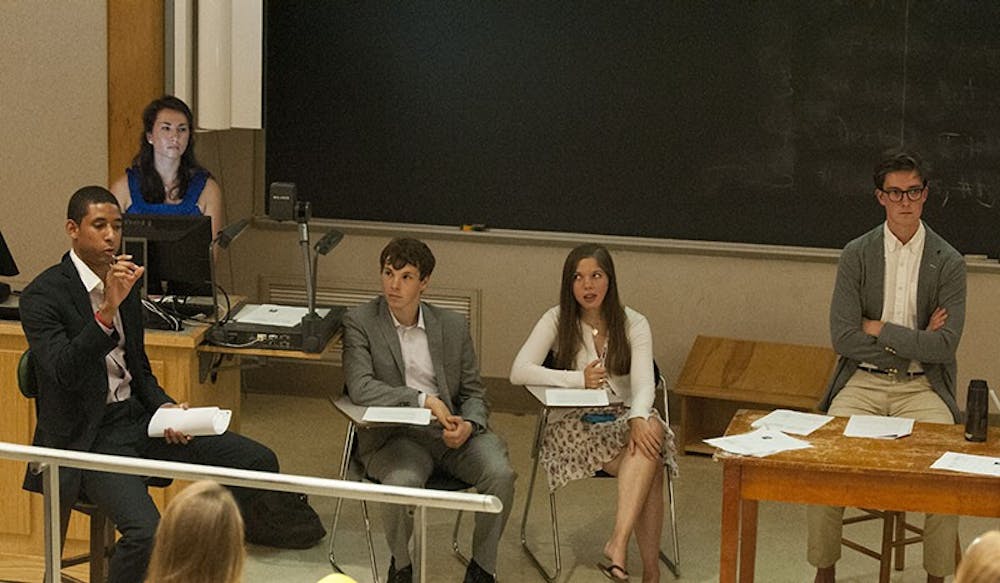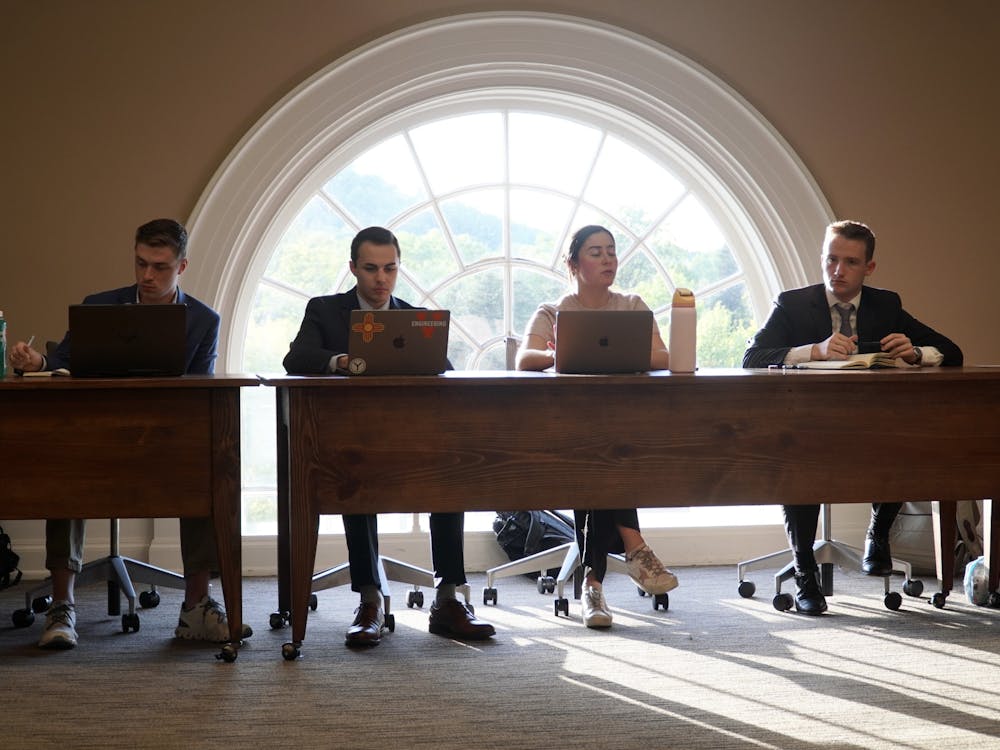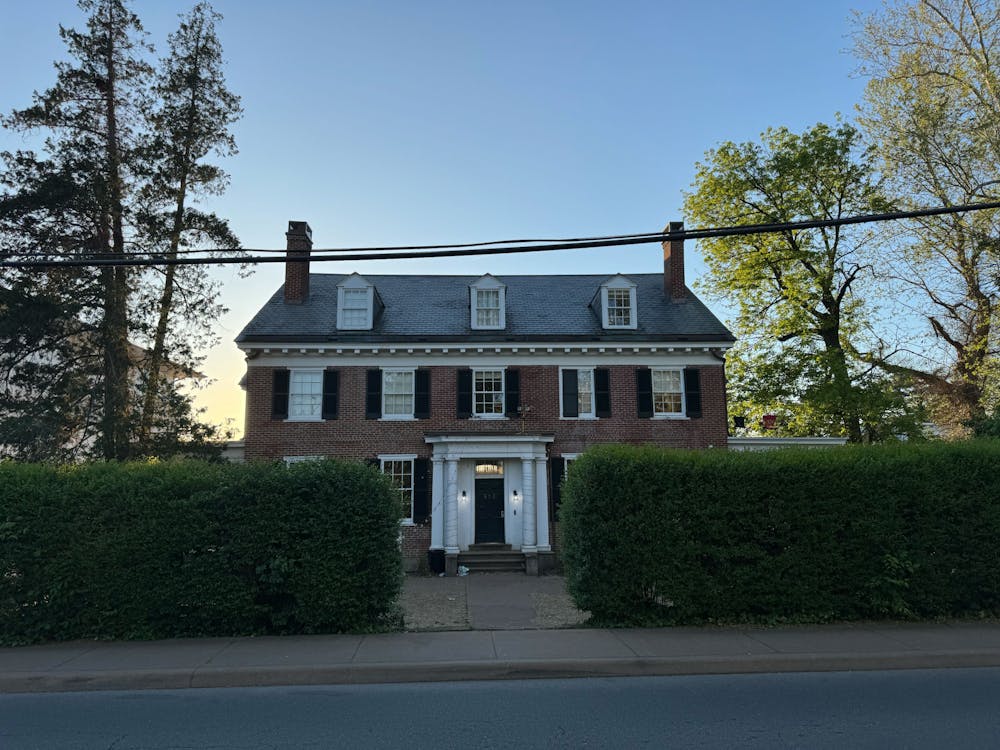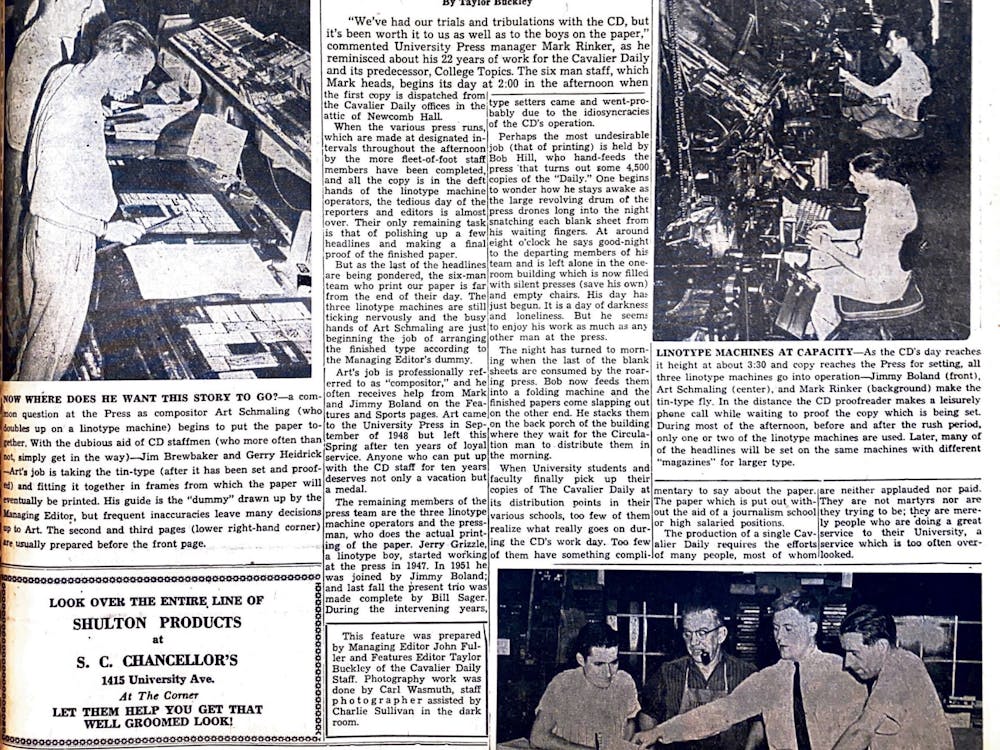The Virginia House Higher Education subcommittee tabled a bill last Tuesday which would give students attending public institutions the right to legal counsel when appearing before student-run judicial panels.
If passed, the bill, proposed by Del. Rick Morris, R-Carrollton, would have granted University students facing a suspension of more than 10 days or expulsion the right to hire an attorney to represent them during University Judiciary Committee and Honor trials not related to academic offenses like plagiarism. It would have also allowed students the right to appeal a decision to a local circuit court.
Honor Committee Chair Evan Behrle, a fourth-year College student, said the bill threatened the University’s tradition of student self-governance.
“[The bill] would have a really negative procedural impact on our system and all other schools’ disciplinary systems,” he said. “At the end of the day, it would mean students were no longer the arbiters of what is honorable or not honorable in our community.”
In a typical UJC or Honor trial, trained UJC or Honor counselors represent students to the trial panel. Students have the right to consult with a professional attorney and to have their attorney present at trials in both instances, though professional attorneys are not permitted to speak on students’ behalf during proceedings. This is done to create a non-adversarial environment, Behrle said.
“The goal of the disciplinary processes is to pursue truth and to provide learning opportunities, and that is really hard to do with attorneys speaking on the behalf of clients,” he said. “It’s not their job to be non-adversarial.”
UJC Chair David Ensey, a fourth-year Engineering student, said UJC trials reflected a “collaborative effort” among students, who serve as counselors, advisors, judges and the accused.
Morris has defended the bill as a way for students, who might be incapable of properly defending themselves, to receive professional support.
“This bill is to give students a voice in expulsion and suspension hearings and a right to due process, which every parent should be concerned about,” Morris said in a statement.
Behrle and Ensey traveled to Richmond Tuesday to voice their opposition to the bill. Behrle said representatives from several other Virginia universities joined them to challenge the potential legislation.
“This bill would have compromised the efficacy of their disciplinary processes,” Behrle said. “[All of these Virginia schools] use non-adversarial systems to pursue the truth.”
Ensey said UJC always has room to improve trial efficiency, but he said legislators understood the effectiveness of the Committee’s process.
“Everyone who was present at that subcommittee hearing came out of it confident that our due process is in [tact],” Ensey said. “Our system works for our students.”
Among the bill’s endorsers was the mother of a College of William & Mary undergraduate who was accused of rape and withdrew from the school, but was later found not guilty in court.
Last year, North Carolina state legislators passed the Students and Administration Equality Act, which is practically identical to Morris’ proposed law, HB 1123. The act was promoted as a way to provide due process to students facing significant administrative proceedings with the support of professional counsel.
Behrle said the Supreme Court and circuit courts have determined students in higher education do not have the right to counsel in university judicial proceedings. That does not mean, however, state laws cannot grant this right, he said.
After hours of debate, the committee tabled the bill for future consideration. The bill won’t be considered again until the 2015 legislative session.
“We’re going to see how the bills evolves,” Behrle said. “I’m sure there will be opposition in the future.”
Ensey said he thought the bill brought up an important topic, but did not do so in an effective manner.
“It’s important to keep having conversations,” Ensey said.





